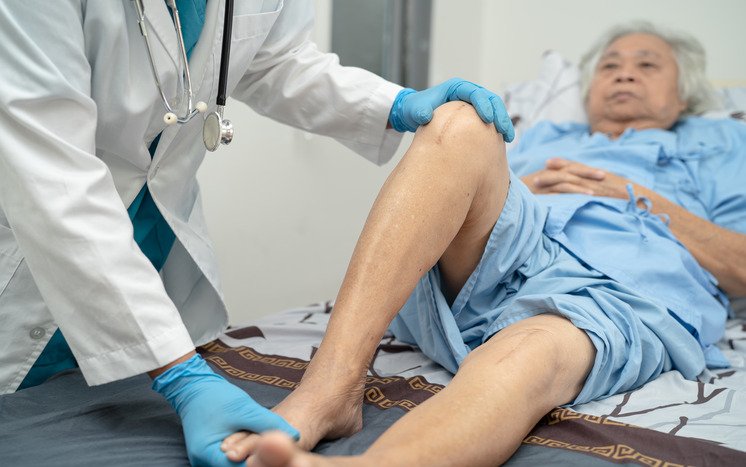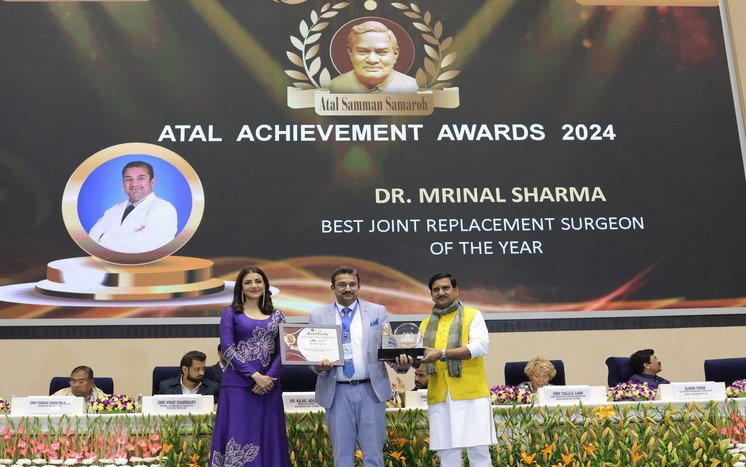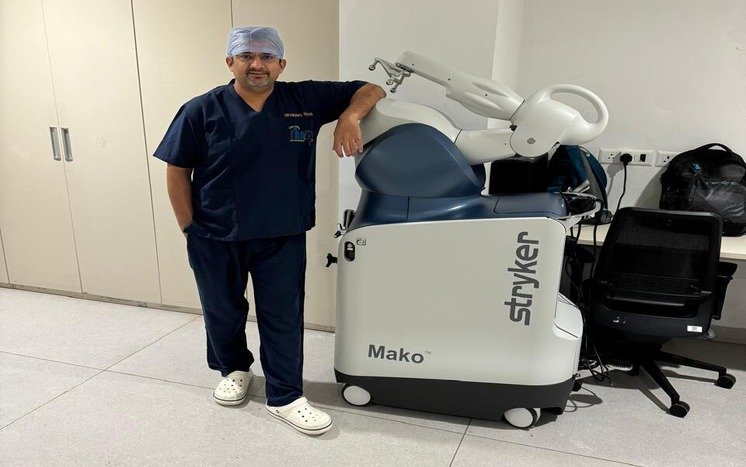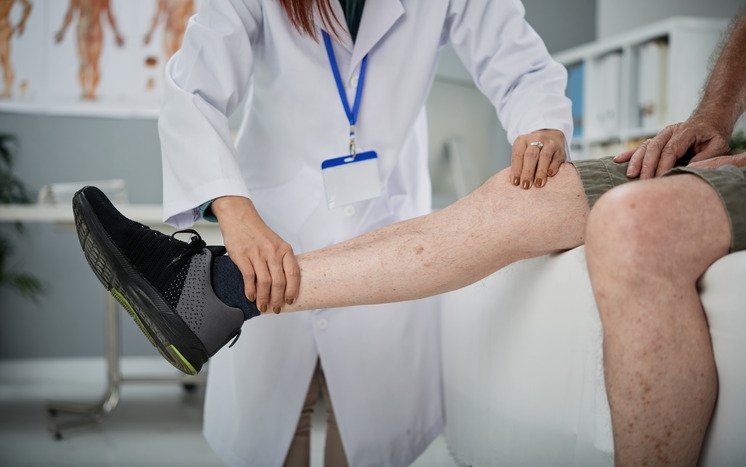
10:00am to 04:00pm (Mon to Sat) - Amrita Hospital, Faridabad
06:00pm to 08:00pm (Mon to Sat) - Arthrocare Clinic, Noida
10:00am to 04:00pm (Mon to Sat) - Amrita Hospital, Faridabad
06:00pm to 08:00pm (Mon to Sat) - Arthrocare Clinic, Noida
 December 6, 2024
December 6, 2024
Knee replacement surgery is a life-changing procedure for individuals suffering from severe knee pain and mobility issues caused by arthritis, injury, or other degenerative conditions. Among the latest advancements in this field, robotic knee replacement surgery has emerged as a game-changer, offering unparalleled precision and faster recovery times. One of the foremost experts in this cutting-edge technique is Dr. Mrinal Sharma, widely recognized as the best robotic knee replacement surgeon in India, based at Amrita Hospital.
This blog explores the duration of a robotic knee replacement surgery, factors that influence the timeline, and why Dr. Mrinal Sharma is a trusted name for this procedure.
Robotic knee replacement is an advanced procedure where a surgeon uses robotic technology to assist in the precise placement of knee implants. Unlike traditional knee replacement, robotic systems ensure optimal alignment of the implant, leading to better functionality, reduced pain, and a longer lifespan of the artificial joint.
The average duration of robotic knee replacement surgery is 1.5 to 2.5 hours per knee. However, the total time can vary based on several factors:
Before the actual surgery begins, there is a preparatory phase where the surgical team positions the patient, administers anesthesia (general or spinal), and sterilizes the surgical site. This phase takes approximately 30–45 minutes.
One of the unique aspects of robotic surgery is the use of pre-operative imaging, such as CT scans, to create a 3D model of the patient’s knee. During the procedure, the robotic system helps the surgeon map out the exact areas to remove damaged bone and cartilage. This step can take 20–30 minutes, ensuring precise planning.
With the help of the robotic arm, the surgeon removes the damaged tissue and places the implant with extreme precision. This phase usually takes 60–90 minutes, depending on the complexity of the case.
After the implants are secured, the surgical site is closed, and a sterile dressing is applied. This phase, including patient stabilization, takes another 30 minutes.
In total, the surgery can last between 2.5 to 3.5 hours, including preparation and closure.
Every patient has unique knee anatomy, and complex cases with severe deformities or previous surgeries may take longer.
The type of robotic system, such as Mako or ROSA, can impact the duration. Advanced systems allow for faster and more accurate mapping.
The experience of the surgeon plays a critical role. Renowned surgeons like Dr. Mrinal Sharma have honed their skills in robotic techniques, ensuring efficient procedures without compromising precision.
Replacing one knee typically takes less time than a bilateral (both knees) procedure, which may extend the surgery duration to 4–5 hours.
Robotic knee replacement offers significant advantages over traditional surgery, including:
Dr. Mrinal Sharma is the Head of Orthopedic & Robotic Surgery at Amrita Hospital and has performed numerous successful robotic knee replacements. His mastery of robotic systems ensures unparalleled precision and patient satisfaction.
Dr. Sharma adopts a patient-centered approach, guiding individuals through every step of the procedure, from pre-surgical planning to post-operative rehabilitation.
Under Dr. Sharma’s leadership, Amrita Hospital is equipped with state-of-the-art robotic systems, making it a top choice for patients seeking the latest advancements in knee replacement surgery.
Dr. Sharma is celebrated not only in India but internationally for his contributions to robotic orthopedic surgery, attracting patients from around the world.
Although the surgery itself takes a few hours, recovery is a gradual process. Robotic technology significantly reduces the recovery timeline. Most patients can:
Dr. Sharma ensures a comprehensive post-operative plan that includes physical therapy, pain management, and regular follow-ups for optimal recovery.
Robotic knee replacement surgery is a precise and efficient procedure that offers patients a new lease on life. While the surgery typically takes 2.5 to 3.5 hours, the benefits far outweigh the time spent in the operating room.
Choosing the right surgeon is vital, and Dr. Mrinal Sharma stands out as a leader in robotic knee replacement in India. His expertise, combined with state-of-the-art technology and compassionate care, ensures that every patient receives the best possible outcome.
If you are considering knee replacement surgery, consult Dr. Mrinal Sharma at Amrita Hospital to take the first step toward pain-free mobility and an improved quality of life.





© 2024 Dr. Mrinal Sharma | All rights reserved. Designed and Developed by DigiTrend